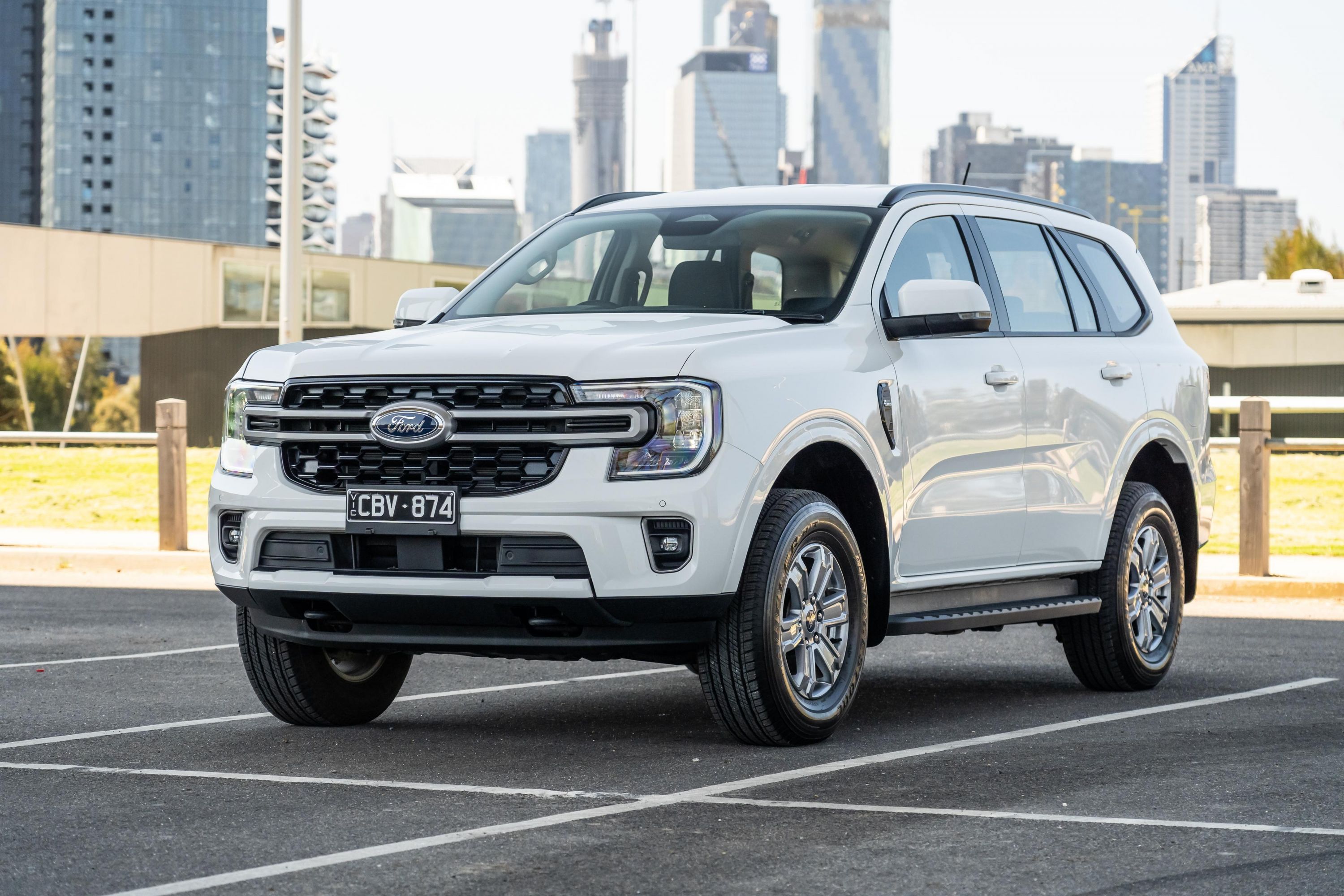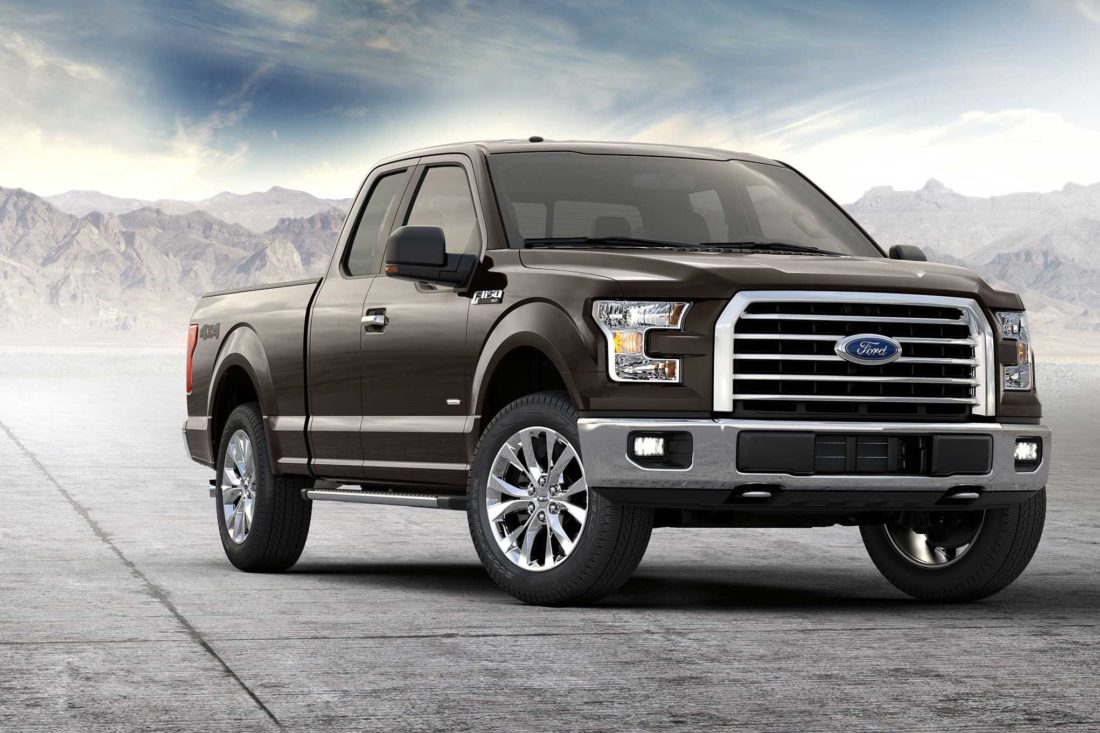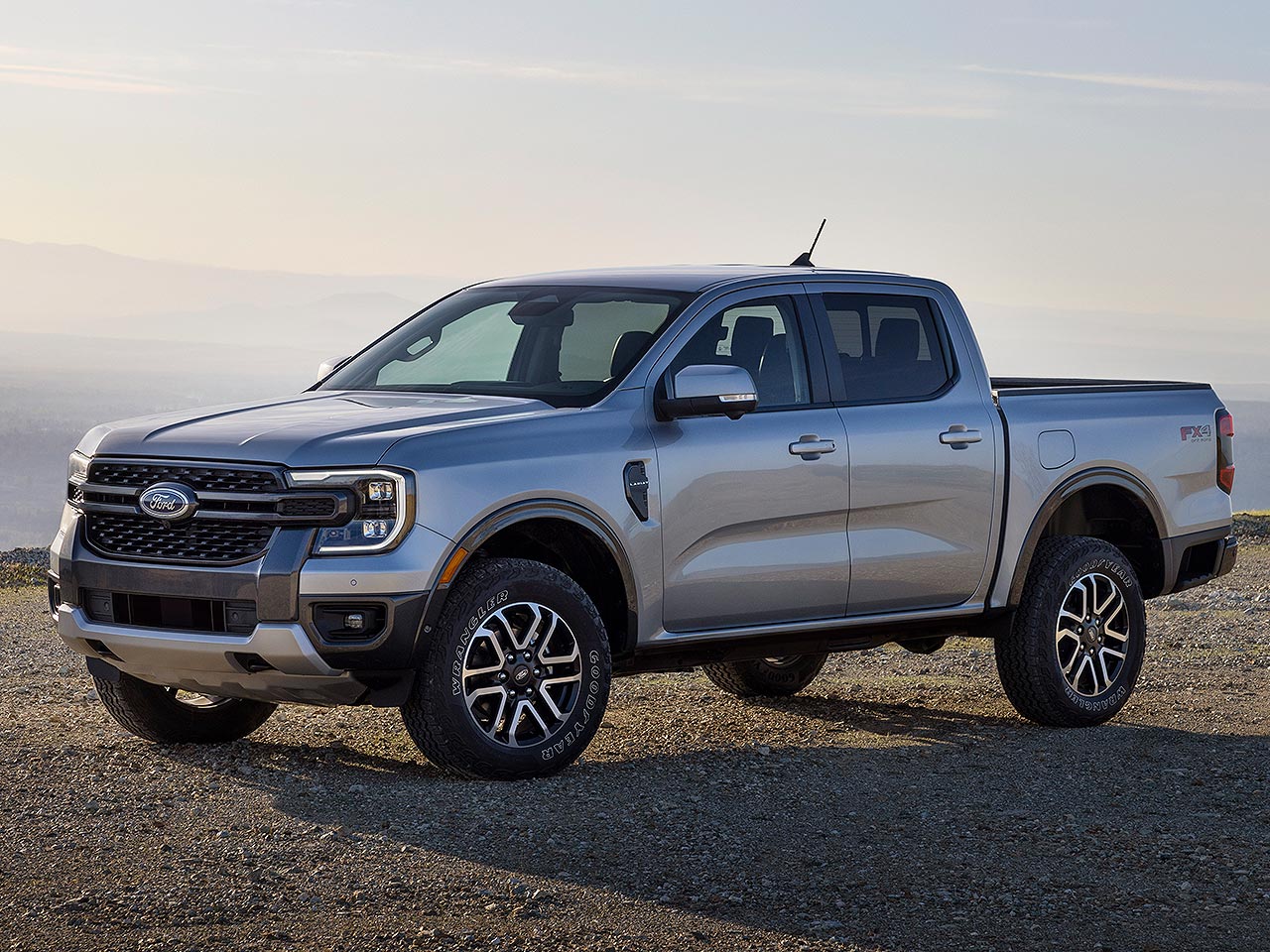Ford Big Trucks For Sale: Your Comprehensive Guide to Power, Performance, and Purpose types.truckstrend.com
In the world of heavy-duty work, where immense power, unwavering reliability, and unparalleled capability are not just desirable but absolutely essential, Ford Big Trucks stand as titans. From hauling colossal loads and navigating challenging terrains to serving as the backbone of countless businesses, these vehicles are engineered to tackle the toughest jobs with remarkable efficiency and brute strength. This comprehensive guide delves into everything you need to know about Ford Big Trucks for sale, whether you’re a seasoned contractor, a growing business owner, or an individual with demanding towing needs.
Understanding the Behemoths: What Are Ford Big Trucks?
Ford Big Trucks For Sale: Your Comprehensive Guide to Power, Performance, and Purpose
When we talk about "Ford Big Trucks," we’re primarily referring to the F-Series Super Duty lineup and Ford’s Medium-Duty commercial trucks. These are not your average pickup trucks; they are purpose-built machines designed for serious work. Ford’s legacy in heavy-duty vehicles spans decades, rooted in the "Built Ford Tough" philosophy, which emphasizes durability, capability, and performance.
The range typically includes:
- F-Series Super Duty (F-250, F-350, F-450, F-550): These are the workhorses of the Super Duty line, known for their immense towing and payload capacities, powerful engine options, and robust chassis. They bridge the gap between consumer-grade pickups and full-on commercial trucks.
- F-600, F-650, F-750 Medium-Duty Commercial Trucks: These are true commercial-grade chassis, often sold as "chassis cabs" to be upfitted with various vocational bodies (dump bodies, utility beds, tow trucks, box trucks, refuse trucks, etc.). They offer even higher Gross Vehicle Weight Ratings (GVWRs) and are designed for continuous, heavy commercial use.
The importance of these trucks cannot be overstated. For businesses, they are critical assets that directly impact productivity, profitability, and the ability to undertake large-scale projects. For individuals, they unlock possibilities like towing large RVs, horse trailers, or heavy equipment that standard trucks simply can’t handle.
Why Choose a Ford Big Truck? Unmatched Benefits and Capabilities

The decision to invest in a Ford Big Truck is often driven by a specific need for superior performance and dependability. Here’s why they stand out:
- Power and Performance: At the heart of these trucks are formidable engines. Ford offers a range of potent gasoline engines (like the "Godzilla" 7.3L V8) and the legendary Power Stroke Diesel engine. These powerplants deliver incredible horsepower and, more importantly, massive torque, essential for pulling heavy loads and climbing steep grades. Their robust transmissions are designed to handle extreme stress, ensuring smooth power delivery.
- Durability and Reliability: The "Built Ford Tough" slogan is more than just marketing; it’s a testament to the engineering. Ford Big Trucks are constructed with high-strength, military-grade aluminum alloy bodies (for lighter weight and corrosion resistance) mounted on fully boxed steel frames. Heavy-duty axles, suspensions, and braking systems ensure they can withstand relentless abuse day in and day out. This inherent durability translates to less downtime and a longer service life.
- Versatility and Customization: One of the greatest strengths of Ford Big Trucks is their adaptability. They are available in various cab configurations (Regular Cab, SuperCab, Crew Cab) and wheelbases, allowing for different bed lengths or the mounting of specialized vocational bodies. The chassis cab options provide a blank canvas for upfitters to create bespoke solutions for virtually any industry – from construction and landscaping to emergency services and freight.
- Technology and Comfort: While built for work, modern Ford Big Trucks don’t skimp on technology or driver comfort. They feature advanced infotainment systems, connectivity options (like FordPass Connect), and a suite of driver-assist technologies (e.g., Pro Trailer Backup Assist, Adaptive Cruise Control, Lane-Keeping Alert). Interiors are designed for long hours, offering comfortable seating, ample storage, and intuitive controls, reducing driver fatigue.
- Strong Resale Value: Due to their reputation for durability and the continuous demand for heavy-duty vehicles, Ford Big Trucks tend to hold their value well. This strong resale market is an important consideration for businesses managing fleet assets or individuals looking for a solid long-term investment.

Navigating the Market: Types of Ford Big Trucks For Sale
Understanding the specific models and their intended uses is crucial for making an informed purchase.

- Ford F-250 Super Duty: Often considered the entry point into the Super Duty line, the F-250 is a popular choice for serious recreational towing (large RVs, boats) and light commercial work. It offers significant payload and towing capabilities beyond what a half-ton truck can provide.
- Ford F-350 Super Duty: A step up in capability, the F-350 is available in single rear wheel (SRW) and dual rear wheel (DRW, or "dually") configurations. The dually version dramatically increases stability and towing capacity, making it ideal for large fifth-wheel trailers, gooseneck trailers, and heavier commercial applications.
- Ford F-450 Super Duty: This is where the Super Duty lineup truly distinguishes itself for extreme towing. The F-450 comes standard as a dually with a wider front axle for a tighter turning radius, larger brakes, and a higher Gross Combined Weight Rating (GCWR). It’s the ultimate pick-up for commercial hot-shot haulers and those towing the largest recreational or commercial trailers.
- Ford F-550 Super Duty: Moving into the chassis cab segment, the F-550 is exclusively available as a chassis cab and is designed for severe commercial use. It offers a higher GVWR than the F-450 and is the platform of choice for heavier utility bodies, medium-duty wreckers, and specialized vocational applications.
- Ford F-600, F-650, F-750 Medium-Duty Trucks: These are true Class 6 and 7 commercial trucks. The F-600 is a relatively new offering bridging the gap between F-550 and F-650. The F-650 and F-750 are built on a commercial platform and are almost always sold as chassis cabs. They are designed for applications like refuse collection, large box trucks, heavy-duty dump trucks, municipal vehicles, and distribution.
New vs. Used:
- New: Offers the latest technology, full warranty, and customization options. Higher initial cost.
- Used: More budget-friendly, depreciation already occurred. Requires more thorough inspection and potentially limited customization. A well-maintained used Ford Big Truck can still offer excellent value and many years of service.
The Buying Process: How to Find Your Ideal Ford Big Truck
Acquiring a Ford Big Truck requires careful consideration. Follow these steps for a successful purchase:
-
Define Your Needs Precisely:
- What will you primarily use the truck for? (Towing, hauling, specific vocational work?)
- What is the maximum weight you need to tow or carry (payload)? Be realistic and factor in future growth. This will dictate the required GVWR and GCWR.
- What kind of terrain will you operate on? (Paved roads, off-road, construction sites?)
- What’s your budget? Not just for the purchase, but also for fuel, maintenance, insurance, and potential upfits.
- Do you need a pickup bed or a chassis cab for a specialized body?
-
Research and Compare:
- Visit Ford’s official website for the latest models, specifications, and configurators.
- Explore reputable truck dealerships, both new and used.
- Check online marketplaces for used trucks (e.g., CommercialTruckTrader, AutoTrader, local classifieds).
- Read professional reviews and watch owner testimonials.
-
Inspect Thoroughly (Especially for Used Trucks):
- Mechanical Inspection: If buying used, strongly consider a pre-purchase inspection by an independent, certified mechanic who specializes in heavy-duty trucks. Check engine, transmission, brakes, suspension, and driveline.
- Exterior/Interior: Look for rust (especially on the frame), signs of accident damage, tire wear, and interior condition (seats, dashboard, electronics).
- Service Records: Request complete maintenance history if available.
-
Test Drive:
- Don’t just drive around the block. If possible, test drive the truck with a load similar to what you intend to haul. Pay attention to acceleration, braking, steering, suspension, and overall comfort.
- Test all electronic features and safety systems.
-
Financing and Insurance:
- Explore financing options from the dealership, banks, or credit unions. Commercial financing might differ from personal loans.
- Obtain insurance quotes. Commercial truck insurance can be significantly more expensive than personal auto insurance.
-
Dealership vs. Private Seller:
- Dealership: Offers financing, warranties (new or certified pre-owned), trade-ins, and a broader selection. Prices might be higher.
- Private Seller: Potentially lower prices, but "as-is" sales. Less recourse if issues arise. Requires more personal due diligence.
Important Considerations Before You Buy
- Gross Vehicle Weight Rating (GVWR) and Gross Combined Weight Rating (GCWR): These are critical. GVWR is the maximum permissible weight of the vehicle itself, including its fuel, passengers, cargo, and any accessories. GCWR is the maximum permissible weight of the loaded vehicle and a loaded trailer. Exceeding these limits is unsafe and illegal.
- Engine Type and Fuel Economy: Diesel engines offer superior torque and fuel efficiency for heavy loads, but typically have a higher upfront cost and more complex maintenance. Gasoline engines are generally cheaper to buy and maintain but consume more fuel when working hard.
- Maintenance and Running Costs: Big trucks mean bigger parts and more fluids. Budget for higher costs for tires, oil changes, brake jobs, and other maintenance. Diesel emissions systems also require specific attention.
- Upfitting and Customization: If you’re buying a chassis cab, factor in the cost and time required for upfitting with a vocational body.
- Licensing and Regulations: For heavier trucks (especially F-650/F-750 or if towing very heavy loads), a Commercial Driver’s License (CDL) might be required, along with adherence to Department of Transportation (DOT) regulations. Be aware of state-specific requirements.
Maximizing Your Investment: Tips for Owners
- Adhere to Maintenance Schedules: Regular oil changes, fluid checks, tire rotations, and filter replacements are paramount for longevity, especially for diesel engines.
- Proper Loading and Towing: Always distribute weight correctly and stay within GVWR/GCWR limits. Use appropriate hitches and trailer brakes.
- Utilize Technology: Familiarize yourself with and use the truck’s advanced features like trailer backup assist, integrated trailer brake controller, and blind-spot monitoring.
- Consider Aftermarket Accessories: For specific tasks, specialized accessories (e.g., upgraded suspension components, auxiliary fuel tanks, winches) can enhance capability.
- Driver Training: If you or your employees are new to operating heavy trucks, consider professional driver training.
Potential Challenges and Solutions
- High Initial Cost:
- Solution: Explore the robust used truck market, consider financing options (commercial loans, leases), or opt for a slightly lower-trim model that still meets your core needs.
- Fuel Consumption:
- Solution: For heavy towing, diesel engines offer better fuel economy. Plan routes efficiently, avoid excessive idling, and maintain proper tire pressure.
- Maneuverability and Parking:
- Solution: Practice driving in tight spaces. Utilize available technologies like surround-view cameras and parking sensors. For commercial applications, dedicated parking at job sites is often necessary.
- Maintenance Complexity:
- Solution: Stick to authorized Ford service centers or reputable heavy-duty truck mechanics who have the specialized tools and knowledge for these vehicles.
Ford Big Trucks For Sale: Estimated Price Guide
Please note that these are estimated price ranges and can vary significantly based on model year, mileage, condition, trim level, engine choice, 2WD/4WD, specific options, market demand, and geographic location. New truck prices are Manufacturer’s Suggested Retail Price (MSRP) before options, taxes, and destination charges. Used prices are highly speculative.
| Model | New Starting Price (Est.) | Used Price Range (Est.) (2-5 years old) | Typical GVWR Range (lbs) | Key Use Cases |
|---|---|---|---|---|
| F-250 Super Duty | $45,000 – $70,000+ | $30,000 – $60,000+ | 10,000 | Heavy recreational towing, light commercial, personal heavy hauling |
| F-350 Super Duty | $47,000 – $80,000+ | $35,000 – $70,000+ | 11,500 – 14,000 | Large RVs, gooseneck trailers, heavy equipment, serious commercial work |
| F-450 Super Duty | $65,000 – $95,000+ | $50,000 – $85,000+ | 14,000 | Extreme towing (hot shot, very large RVs), heavy commercial |
| F-550 Chassis Cab | $58,000 – $85,000+ | $40,000 – $75,000+ | 17,500 – 19,500 | Utility, wreckers, dump, service, landscape, municipal (chassis only) |
| F-600 Chassis Cab | $65,000 – $90,000+ | $50,000 – $80,000+ | 22,000 | Medium-duty vocational, delivery, specialized equipment |
| F-650 Chassis Cab | $75,000 – $110,000+ | $60,000 – $95,000+ | 26,000 – 29,000 | Refuse, large box trucks, heavy dump, municipal, distribution |
| F-750 Chassis Cab | $80,000 – $120,000+ | $65,000 – $100,000+ | 33,000 – 37,000 | Heavy haul, specialized commercial, municipal, larger vocational |
Note: Prices for chassis cabs do NOT include the cost of the vocational body (e.g., dump bed, box, crane), which can add tens of thousands of dollars or more.
Frequently Asked Questions (FAQ)
Q1: What is the difference between a Super Duty pickup and a chassis cab?
A1: A Super Duty pickup (F-250 to
